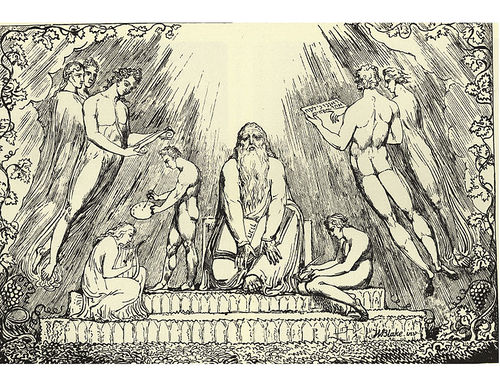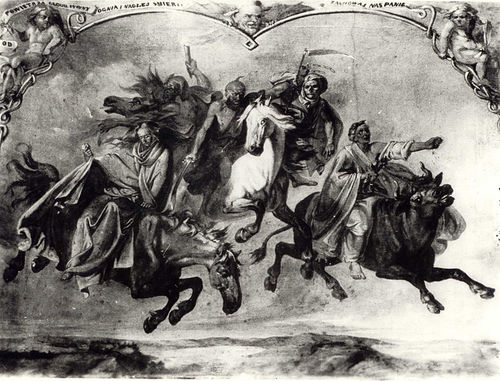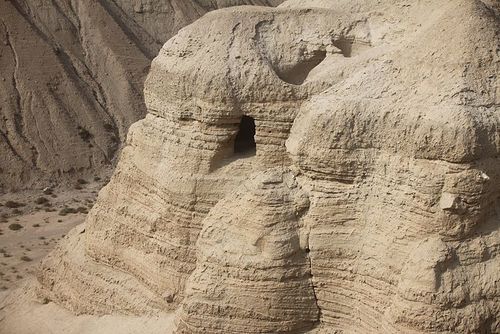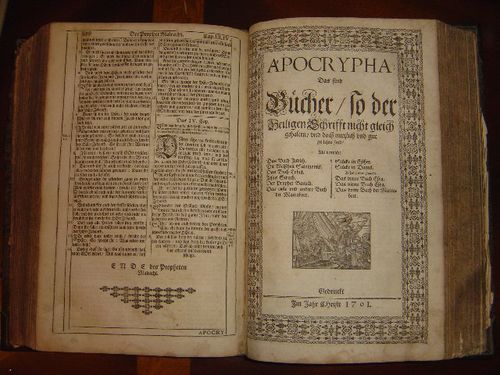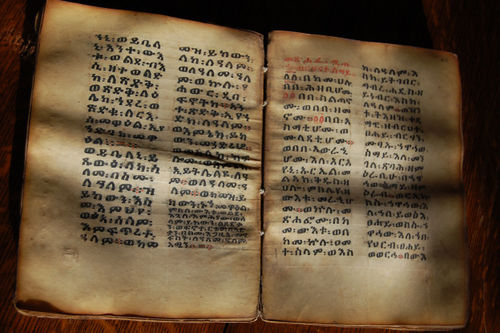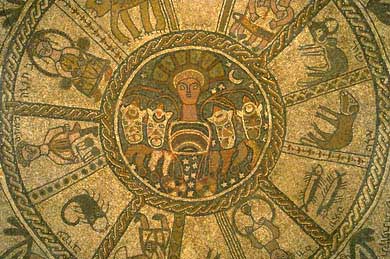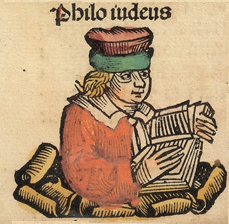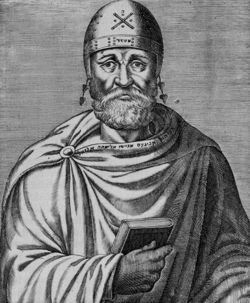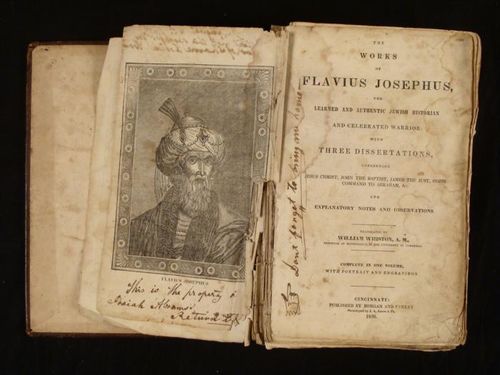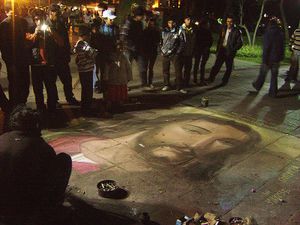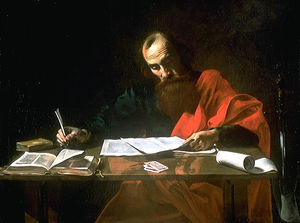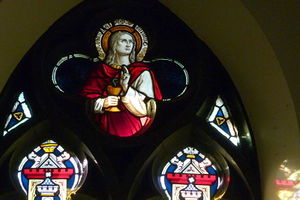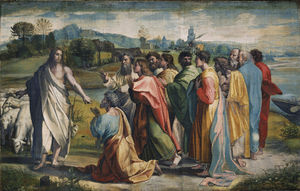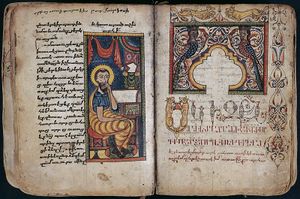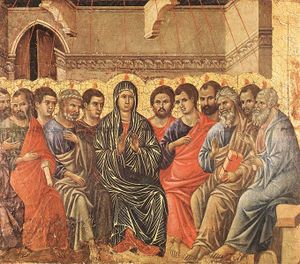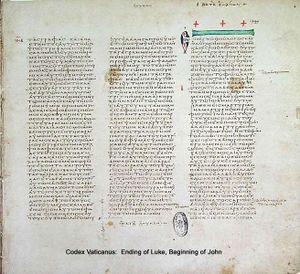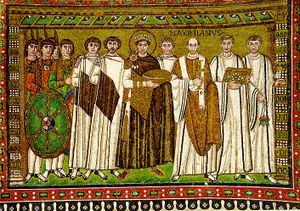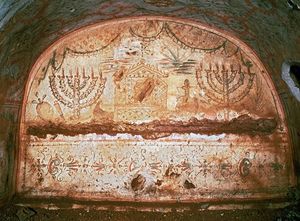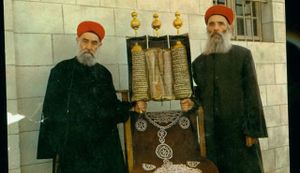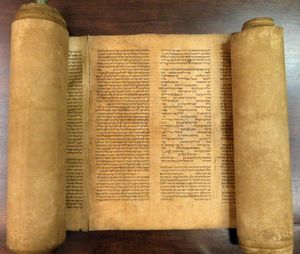Difference between revisions of "Main Page"
| Line 259: | Line 259: | ||
|px= 38 | |px= 38 | ||
|content= [[File:Quran book.jpg|300px]] | |content= [[File:Quran book.jpg|300px]] | ||
}} | |||
{{WindowMain | |||
|title= [[Early Samaritan Studies]] | |||
|backgroundLogo= Bluebg_rounded_croped.png | |||
|logo= contents.png | |||
|px= 38 | |||
|content= [[File:Samaritan Bible.jpg|300px]] | |||
}} | |||
{{WindowMain | |||
|title= [[Hebrew Bible Studies]] | |||
|backgroundLogo= Bluebg_rounded_croped.png | |||
|logo= contents.png | |||
|px= 38 | |||
|content= [[File:Hebrew Bible Bologna.jpg|300px]] | |||
}} | }} | ||
Revision as of 16:36, 7 April 2015
|
Welcome to 4 Enoch: The Online Encyclopedia of Second Temple Judaism |
|
Jewish, Christian & Islamic Origins, in Scholarship and Fiction, from the 15th century to the present |
|
|
|
Editorial Board Editorial Board
Thematic Board
Language Board
History 4 Enoch: The Online Encyclopedia of Second Temple Judaism and Christian Origins is an academic project of the Enoch Seminar, created in 2009 by Gabriele Boccaccini (University of Michigan, USA), in collaboration with the late Hanan Eshel (Bar-Ilan University, Israel), Loren T. Stuckenbruck (Princeton Theological Seminary, USA), and Carlos A. Segovia (Camilo José Cela University, Spain). The current Board of Directors of the Enoch Seminar includes: Gabriele Boccaccini (chair), Kelley Coblentz Bautch, Esther Eshel, Matthias Henze, Pierluigi Piovanelli, Carlos A. Segovia, and Loren T. Stuckenbruck. See the Enoch Seminar Website Born as a bibliography in the early 1990s and developed as a database in the 2000s, 4 Enoch has been made freely accessible online in wiki-format since August 2009. It now includes more than 1,000 encyclopedic entries, 8,000 abstracts of scholarly and fictional works, 3,000 biographies of scholars and authors, from the 15th century to the present... Funds for the Enoch Seminar are provided by the Alessandro Nangeroni International Endowment, the Michigan Center for Early Christian Studies, the Department of Near Eastern Studies of the University of Michigan and the Frankel Center for Judaic Studies. |
With more than 15,000 pages, "4 Enoch" provides a comprehensive WHO's WHO of the period, as well as BIOGRAPHIES of Scholars and Authors, and ABSTRACTS of scholarly and fictional Works, authored from the mid-15th century to the present, all around the world. Still a work in progress, the Encyclopedia, created in 2009 by Gabriele Boccaccini of the University of Michigan with the collaboration of Carlos A. Segovia of the Camilo Jose Cela University Madrid, is the collective work of international specialists in the field associated with the Enoch Seminar [1]
}}
Second Temple
Christian Origins
Cognate Studies
Biographies
Afrikaans -- Albanian -- Arabic -- Armenian -- Bulgarian -- Catalan -- Chinese -- Croatian -- Czech -- Danish -- Dutch -- English -- Estonian -- Farsi -- Finnish -- Flemish -- French -- German -- Greek -- Hebrew -- Hungarian -- Iceland -- Italian -- Japanese -- Korean -- Latin -- Latvian -- Lithuanian -- Maltese -- Norwegian -- Persian -- Polish -- Portuguese -- Romanian -- Russian -- Serbian -- Slovak -- Slovenian -- Spanish -- Swedish -- Ukrainian -- Welsh -- Yiddish
Albania -- Argentina -- Armenia -- Australia -- Austria -- Belgium -- Brazil -- Bulgaria -- Canada -- Chile -- China -- Columbia -- Croatia -- Czech Republic -- Denmark -- Estonia -- Ethiopia -- Finland -- France -- Germany -- Greece -- Hungary -- Iceland -- Ireland -- Israel -- Italy -- Japan -- Latvia -- Lituania -- Malta -- Mexico -- Netherlands -- Norway -- Peru -- Poland -- Portugal -- Romania -- Russia -- Scotland -- Serbia -- Slovakia -- Slovenia -- South Africa -- South Korea -- Spain -- Swedish -- Switzerland -- United Kingdom -- United States -- Uruguay -- Wales
News
Conferences
|
Note: 4 Enoch is a work in progress. In the first phase (Aug 2009 - Jul 2010) thousands of entries (abstracts of works of scholarship and fiction, biographies of scholars and authors, etc.) were included.
The keywords associated with each bibliographical and biographical entry have generated numerous "Subject entries" or "Categories" (now existing mostly in a draft form), which in the second phase of the project (Aug 2010 - Aug 2014) are now in the process of being assigned to specialists and developed as original contributions to the study of Second Temple Judaism and Christian Origins
